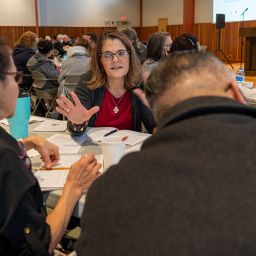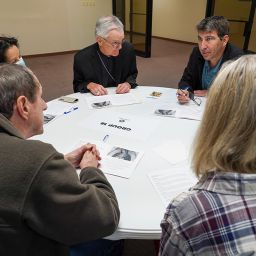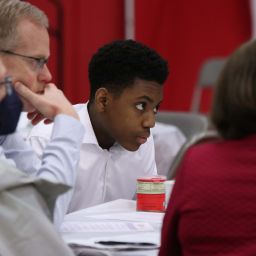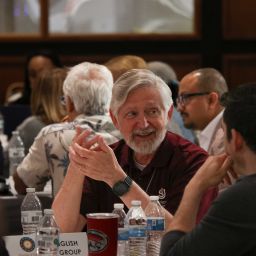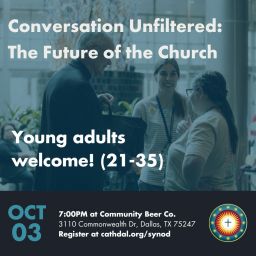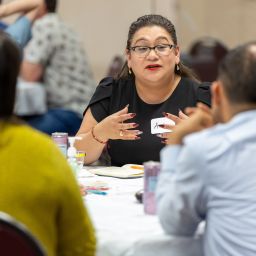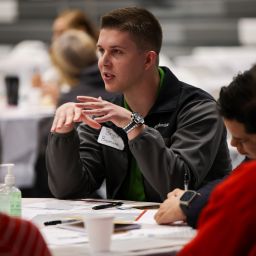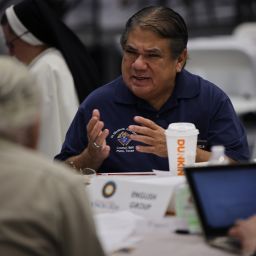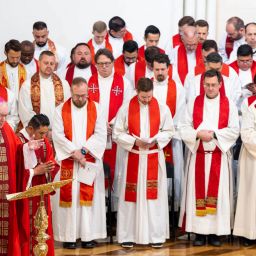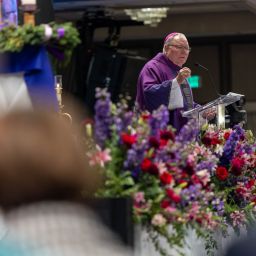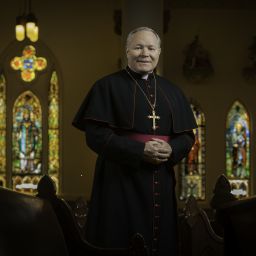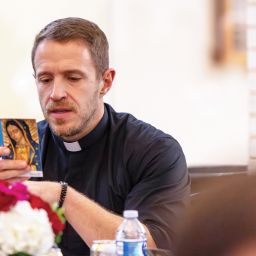By Lacy de la Garza
Special to The Texas Catholic
This December, the Diocese of Dallas is preparing to enter an extraordinary phase in its history with a diocesan synod. This four-day assembly, being held Dec. 1-4, is a culmination of years of preparation, input, and discernment that brought together representatives from across the diocese to offer feedback to Bishop Edward J. Burns in his decisions on governance of the diocese. Here are five essential things to know about this historic event.
- The delegation represents the breadth and depth of our diocese. At the heart of this synod is the assembly of almost 300 delegates, chosen specifically to represent the richness of the Catholic community within the Diocese of Dallas. These delegates include lay people, clergy, parish staff, and religious representatives who embody the broad spectrum of backgrounds, experiences, and perspectives that make up the diocese. The makeup of those asked to offer a consultative vote aims to reflect the full community, from those deeply involved in parish life to those engaged in broader Catholic ministries and outreach. The delegates will offer their hopes and concerns through the consultative votes they will place during the assembly.
- Nearly 400 items will be presented for consultative votes. During the Synod Assembly, delegates will review and vote on a remarkable 376 proposals, which cover a wide range of topics and priorities reflecting the potential growth of our diocesan community. Each item holds importance as all are rooted in the desire to foster spiritual growth, strengthen Catholic identity, and ensure a thriving future for the Church in Dallas. These topics range from how to strengthen youth and family ministries to supporting priests in their vocations to deepening communities within the Church. Though the specific proposals are varied, each has been carefully crafted and considered with specific potential solutions to be discussed. This work represents months of listening sessions, preparatory meetings, and prayer.
- Doctrine remains unchanged. For many Catholics, it’s essential to understand that a diocesan synod, while significant, does not and cannot make changes to core Church doctrines. Instead, a synod is a local, pastoral assembly focused on offering assistance to the bishop while he adapts diocesan practices, priorities, and outreach to meet the unique needs of its community. In other words, the synod will offer perspective to the bishop in how the Diocese of Dallas can live out the timeless truths of the faith in a way that responds to the realities of today. The discussions and decisions made at this synod aim to deepen the commitment of the faithful and encourage active participation without altering foundational beliefs.
- Masses and confessions will continue on a limited schedule. As the Synod Assembly convenes, Masses and confessions will still be available across the diocese, though some parishes may offer them on a modified schedule during the four-day assembly. Parishioners are encouraged to check with their local parishes to confirm Mass and confession times during the synod weekend. A full spread is also present in this edition of The Texas Catholic. The diocese acknowledges the importance of these sacraments for daily life and is committed to ensuring they remain accessible, even while the synod is in session.
- The journey is rooted in history and heading toward the future. This upcoming Synod Assembly will be the first in Dallas since 1934, marking nearly 90 years since the last assembly of this kind. During that 1934 synod, resolutions were made that shaped parish structures, educational outreach, and early social services, laying a foundation that continues to influence the diocese today. This Synod in 2024 will build on that legacy, seeking to address new challenges and embrace fresh opportunities for Catholic evangelization and community-building.
As this chapter concludes, the work will shift toward a longer-term process. At the end of the year, the Synod Preparatory Commission, which has guided the synod’s development, will dissolve. In its place, a new Synod Implementation Commission will take on the task of offering counsel to the bishop as he governs the diocese through a formal process of implementation that will continue through 2031. However, it is important to recognize that the diocese foresees the renewal sparked by this synod in 2024 will extend well beyond that timeframe, fostering a thriving Catholic community that endures for generations.
Lacy de la Garza is the executive director of the Diocese of Dallas Synod.

